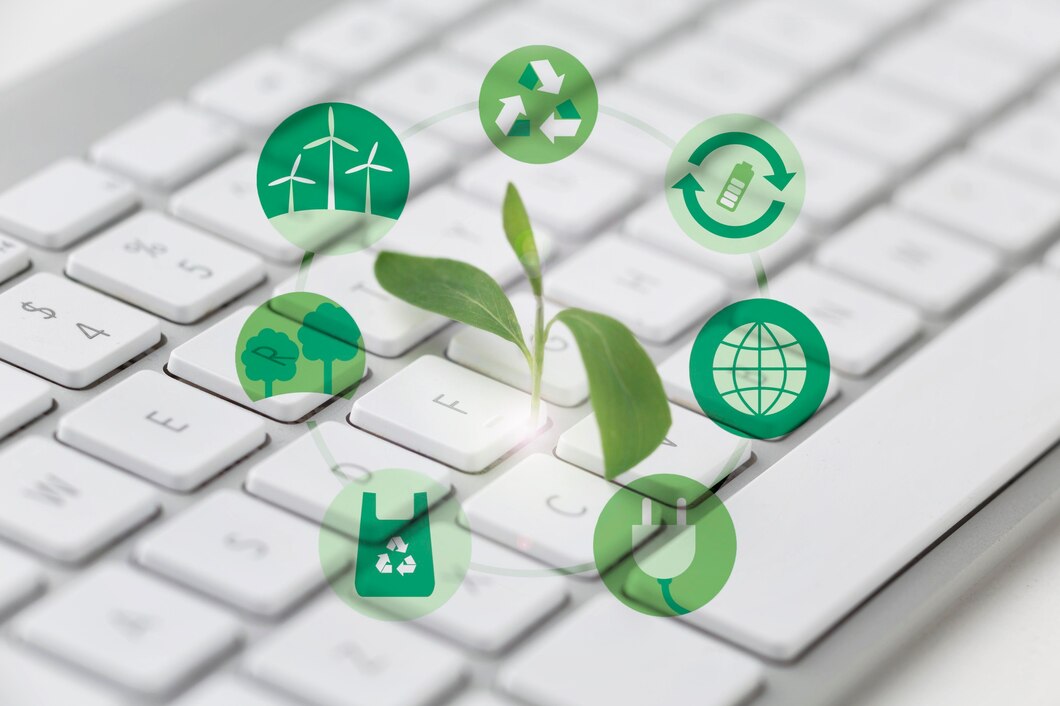As the world continues to face environmental challenges, businesses in Botswana are increasingly recognizing the importance of adopting sustainable practices. Small and medium-sized enterprises (SMEs) in Botswana are uniquely positioned to make a significant impact in the fight against climate change by embracing green technology. By integrating green technologies, Botswana’s SMEs can reduce their environmental footprint, cut operational costs, and attract eco-conscious consumers. This article explores practical steps for adopting green technology in Botswana’s SME sector and highlights the benefits that can come with making the transition to greener, more sustainable business practices.
What is Green Technology?
Green technology, or clean technology, refers to innovations and solutions designed to reduce environmental harm, promote sustainability, and conserve natural resources. These technologies are aimed at improving energy efficiency, reducing waste, and lowering carbon emissions. Examples include renewable energy sources like solar and wind power, energy-efficient appliances, waste management systems, and eco-friendly manufacturing processes.
In Botswana, SMEs make up a large portion of the economy, and by adopting green technology, these businesses can contribute to a cleaner, healthier environment while simultaneously improving their bottom line.
Why SMEs Should Adopt Green Technology
1. Cost Savings
One of the most compelling reasons for SMEs in Botswana to adopt green technology is the potential for cost savings. Energy-efficient technologies, such as LED lighting, energy-saving appliances, and solar energy systems, can significantly reduce electricity consumption. Over time, these cost savings can add up, allowing SMEs to reinvest the money into other areas of their business.
For example, solar power can help businesses cut down on their electricity bills, especially in Botswana, where sunlight is abundant. By installing solar panels, SMEs can reduce their reliance on the national grid and lower their overall energy expenses.
2. Regulatory Compliance
Globally, governments are tightening environmental regulations, and Botswana is no exception. By adopting green technologies early on, SMEs can stay ahead of regulatory changes and ensure compliance with both local and international environmental standards. This not only helps avoid potential fines but also demonstrates the business’s commitment to sustainability, which can improve its reputation.
3. Attracting Environmentally Conscious Consumers
As awareness of environmental issues grows, more consumers are opting to support businesses that prioritize sustainability. Green technology can enhance a brand’s appeal to eco-conscious customers. In Botswana, where environmental conservation is becoming a priority, adopting green technology can be a strong selling point for businesses looking to differentiate themselves in the market.
Consumers are increasingly looking for products and services from businesses that are environmentally responsible. By integrating green technology, SMEs can meet the growing demand for eco-friendly solutions and gain a competitive edge.
4. Improved Efficiency and Productivity
Green technologies are designed to optimize resource use, leading to greater efficiency. For example, automation systems and energy-efficient equipment can help reduce waste and improve operational processes. Adopting green technology can result in more streamlined operations, higher productivity, and fewer resources wasted during the production process.
5. Long-Term Sustainability
For businesses in Botswana, embracing green technology can ensure long-term sustainability. As the global economy shifts towards sustainability, companies that fail to adopt green practices may face challenges in remaining competitive. By investing in green technologies now, SMEs can future-proof their businesses and position themselves as leaders in the green economy.
Steps to Adopt Green Technology in Botswana’s SME Sector
1. Conduct an Environmental Audit
Before adopting green technologies, SMEs should conduct an environmental audit to assess their current environmental impact. This audit should evaluate energy consumption, waste management practices, water usage, and carbon emissions. By identifying areas where improvements can be made, SMEs can prioritize the green technologies that will have the most significant impact on their operations.
For example, a business that uses a lot of electricity for cooling or heating might prioritize energy-efficient HVAC systems or solar power solutions. On the other hand, a manufacturing SME might focus on waste reduction technologies or energy-efficient machinery.
2. Invest in Renewable Energy Solutions
Botswana enjoys ample sunshine throughout the year, making solar power a viable and cost-effective renewable energy solution. SMEs can invest in solar panels to power their offices, factories, or stores. In addition to reducing energy costs, solar power systems can provide businesses with greater energy independence and reduce their reliance on the national grid, which may be subject to disruptions.
Wind energy is also a potential solution for businesses located in areas with strong wind resources. In the long term, investing in renewable energy can significantly reduce operational costs and make businesses more resilient to energy price fluctuations.
3. Implement Energy-Efficient Practices and Equipment
Adopting energy-efficient technologies is one of the simplest and most effective ways for SMEs in Botswana to reduce their environmental footprint. Switching to energy-efficient lighting (such as LED lights), upgrading appliances to energy-efficient models, and ensuring that heating and cooling systems are optimized can all contribute to substantial energy savings.
In the office setting, businesses can promote energy-saving habits, such as turning off equipment when not in use, using power strips to control multiple devices, and optimizing heating and cooling to avoid unnecessary energy consumption.
4. Adopt Sustainable Waste Management Practices
Efficient waste management is an essential component of green technology. SMEs in Botswana can adopt sustainable waste management practices by reducing, reusing, and recycling materials. Businesses can implement waste sorting systems and ensure that recyclable materials are appropriately disposed of. Partnering with local waste management companies that prioritize recycling and sustainable disposal methods can also contribute to the business’s green initiatives.
For businesses in manufacturing or retail, reducing packaging waste and opting for biodegradable or recyclable packaging options can further minimize environmental impact.
5. Use Green Building Materials and Practices
For SMEs involved in construction, architecture, or real estate, the use of green building materials and practices is another way to reduce environmental impact. Green building practices include using materials that are environmentally friendly, such as recycled materials or sustainable wood, and implementing energy-efficient construction methods.
Building energy-efficient buildings with proper insulation, energy-efficient windows, and natural lighting systems can reduce energy consumption and create healthier, more comfortable working environments.
6. Leverage Technology for Sustainability
Incorporating digital technologies can also enhance sustainability efforts. For example, adopting cloud computing reduces the need for physical storage and servers, which can help reduce the energy required to maintain and power those systems. SMEs can also leverage IoT (Internet of Things) devices to monitor and manage energy use more efficiently.
Cloud-based software and automation tools can also streamline operations and reduce the need for physical resources, such as paper, contributing to a greener business model.
7. Educate Employees on Sustainability
For green technology to be effective, employees must be on board with sustainability efforts. SMEs should provide training and resources to educate employees about the importance of environmental responsibility and how they can contribute to green initiatives. This can include adopting energy-efficient practices, reducing waste, and encouraging sustainable transportation methods such as carpooling or cycling.
8. Measure and Report Progress
Once green technologies have been implemented, it’s important to measure the results. Businesses should track their energy usage, waste reduction, and carbon footprint regularly to assess the effectiveness of their green initiatives. Many organizations choose to report their environmental impact publicly, which can enhance their reputation and attract eco-conscious customers.
Adopting green technology is not just a trend; it’s a necessary step for Botswana’s SMEs to remain competitive, reduce costs, and contribute to a more sustainable economy. By investing in renewable energy, implementing energy-efficient practices, improving waste management, and educating employees on sustainability, SMEs can make a significant impact on the environment while improving their operations and profitability.
As the world continues to prioritize sustainability, Botswana’s SMEs have the opportunity to lead the way by embracing green technology, reducing their environmental footprint, and positioning themselves as forward-thinking, eco-conscious businesses in a global market.






